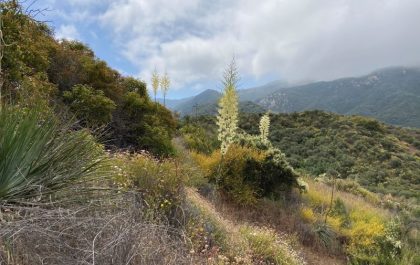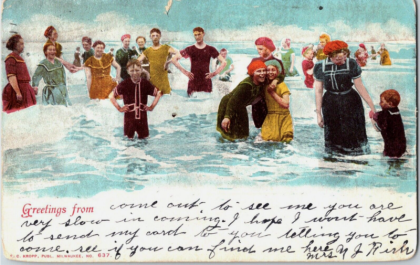California legislators were busy in 2021 crafting new laws, which will go into effect on January 1, 2022. Here’s a selection of the new legislation, including some of the most interesting, controversial, and locally relevant new laws of the year.
Assembly Bill 3. Adds “Sideshow” to California Vehicle Code and defines it as “an event in which two or more persons block or impede traffic on a highway for the purpose of performing motor vehicle stunts, motor vehicle speed contests, motor vehicle exhibitions of speed, or reckless driving for spectators. The penalty portion of the law takes effect on July 1, 2025, and permits the court to suspend a sideshow participant’s driver license for between 90 days and six months. Sideshows have increasingly become a hazard on canyon roads and have caused serious safety problems and traffic delays on Pacific Coast Highway.
AB 43. Authorizes local authorities to reduce speed limits in places where the safety of pedestrians and cyclists is at risk. Highway safety advocates in Malibu are hoping this law may finally provide a way of convincing Caltrans to lower speeds on Pacific Coast Highway.
AB 974. AB 974 requires anyone under 18 who rides an equestrian animal on a paved road to “wear a properly fitted and fastened helmet.” It also requires equestrians of any age to wear reflective clothing or a headlamp at night for safety. The law brings equestrian safety gear requirements for young riders in line with the requirements for bikes, skateboards and scooters.
AB 26. Requires police to report to agencies when they see another police officer using excessive force.
AB 48. Prohibits law enforcement personnel from firing rubber bullets or tear gas at protesters in non-life threatening situations.
AB490. Prohibits law enforcement personnel from using restraints that could suffocate a suspect.
AB89. Raises the minimum age to become a police officer in California to 21.
AB 1171. Expands the definition of rape to include rape by a spouse. California’s penal code previously had a separate category for spousal rape. Under the new definition, individuals convicted will receive mandatory jail time, and must be added to the sex offender registry.
Senate Bill 73. Ends mandatory prison sentences for non-violent drug offenses that don’t involve minors or other special circumstances.
SB 332. Makes it easier for fire personnel to perform prescribed burns by limiting their liability, creating an exemption to the existing law that prohibits setting fire or causing fire to be set to any forest, brush, or other flammable material that is on any land that does not belong to the individual or agency setting the fire.
SB 1383. Requires all residents and businesses to separate compostable green waste into a separate bin that will be provided by each community’s waste service. The new law will be implemented gradually. Fines aren’t expected to go into effect until 2024.
SB 3. Raises the minimum wage to $15 for all employers with more than 25 employees. Employers with fewer than 25 employees must pay at least $14 an hour.
SB 331. Prohibits employers from requiring non-disclosure provisions that prevent disclosure of harassment or discrimination claims.
AB 286. Makes it illegal for food delivery app companies to retain any portion of a tip or gratuity earned by drivers or restaurants.
AB 1033. Expands the protections provided by the California Family Rights Act (CFRA) to enable employees who qualify for protected family care and medical leave under CFRA to use that leave to care for a parent-in-law, defined as the parent of a spouse or domestic partner.
SB 221. Requires insurance companies to decrease the wait time for patients seeking mental health and substance abuse treatment.
SB 9. Streamlines the process for property owners to add second units, otherwise known as accessory dwelling units.
AB37. Ensures that every active registered voter in California will receive a mail-in ballot for all future elections.
AB1084. Requires all major retailers to have a gender-neutral toy section.
SB 389. The “cocktails-to-go” law allows restaurants to continue selling cocktails to go until December 31, 2026.
California’s Proposition 12 is also set to go into effect on January 1, despite an eleventh hour lawsuit seeking to overturn or delay the law. Prop. 12 establishes minimum space requirements for livestock, based on square feet for calves raised for veal, breeding pigs, and egg-laying birds, including hens, turkeys, ducks, geese and guinea fowl. It also bans the sale of meat or eggs from animals confined to areas below minimum square-feet requirements.












